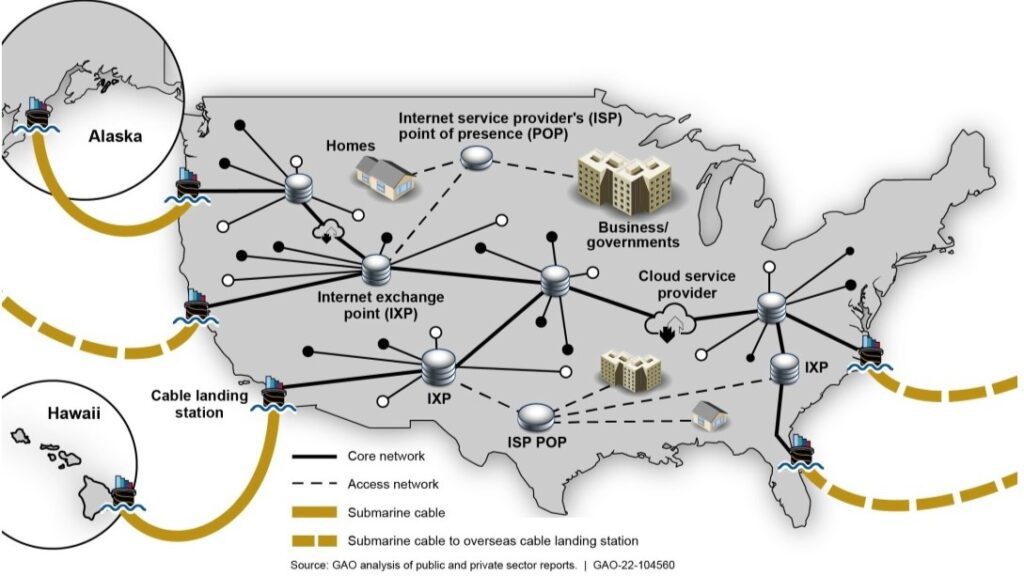FCC Seeks to Move Title II Appeal to the D.C. Circuit
Randy Sukow
|

Update, July 12: Today the Sixth Circuit Court of Appeals issued a temporary stay until Aug. 5 of the FCC’s April Title II order. The order had been scheduled to go into effect on July 22. Soon after the recent Supreme Court decision overturning the 40-year-old Chevron doctrine, the Sixth Circuit asked parties in the Title II case for briefs describing how the decision affects a stay motion filed by opponents of the FCC’s order. In the latest order, the court asks parties for briefs concerning the 2005 Brand X case, which classified internet from cable TV providers as an “information service” exempt from telecommunications regulation, but left open the interpretation of internet service from other providers. Parties have until July 19 to file briefs.
________
Update, June 30: The Sixth Circuit on June 28 denied the FCC’s request to move the Title II case to the DC Circuit. Eleven organizations have challenged the FCC’s order in seven different appeals court circuits. A month ago, the Sixth Circuit became the venue for the consolidated cases through a lottery system. The Sixth Circuit said it did not find any special circumstances that would prompt the transfer, and that the “lottery system would not mean much if a party disappointed by the luck of the draw could transfer the case to its preferred forum,” according to the text of the order obtained by online news service Broadband Breakfast.
Title II opponents have requested that the Sixth Circuit stay the FCC’s Title II order, which is scheduled to go into effect on July 22. In the same order where it retains jurisdiction, the Sixth Circuit asks parties to submit briefs by July 8 “addressing the effect of the Supreme Court’s decision in Loper Bright Enterprises v. Raimondo [overturning Chevron deference]” on the stay analysis.
________
As it currently stands, the FCC’s April Declaratory Ruling, Order, Report and Order, and Order on Reconsideration restoring Title II telecommunications regulations on broadband internet service providers is set to go into effect on July 22. But several Title II opponents are ready to appeal the order in the U.S. Court of Appeals for the Sixth Circuit based in Cincinnati. The Commission is seeking to have that appeal moved to the U.S. Court of Appeals for the District of Columbia Circuit.
It is possible that the Supreme Court ultimately will decide the question of telecommunications regulation of broadband internet, but the location of the appeal could be an important interim factor. The Commission favors the D.C. Circuit, which upheld a similar Title II order on appeal in 2018.
Several groups in late May filed appeals in different jurisdictions throughout the nation after CTIA – The Wireless Association filed its appeal in the D.C. Circuit. Among them, the Ohio Telecom Association, Ohio Cable Telecommunications Association and USTelecom – The Broadband Association, filed in the Sixth Circuit. A multijurisdictional panel later assigned the case to the Sixth Circuit by lottery.
“In a series of orders beginning in 2005, the FCC has acted to promote the widespread deployment of broadband networks that are open, affordable, and accessible to all. Four of these previous orders have been reviewed by the D.C. Circuit,” the FCC said in a June 7 petition to the Sixth Circuit. “The D.C. Circuit has repeatedly engaged with the FCC concerning the lawful contours of the agency’s Open Internet rules. Respondents submit that it would be most efficient, and in the interest of justice, to transfer this latest round of follow-on litigation to the D.C. Circuit.”
Meanwhile, the FCC denied a petition to stay the effects of the April order. USTelecom, CTIA, NCTA – The Internet & Television Association, and eight other national and state organizations filed the petition late last month as many of the same organizations filed appeals. The petitioners argued that the FCC should allow the court to consider the major-questions doctrine’s inpact on the case before the order goes into effect. “Petitioners’ arguments for why the Commission’s classification decision should be analyzed under the major-questions doctrine are not persuasive,” the FCC said in the order to deny.
Title II opponents could petition for a stay with the appeals court, whether it be the Sixth Circuit or DC Circuit. The DC Circuit denied such a petition in 2015.


